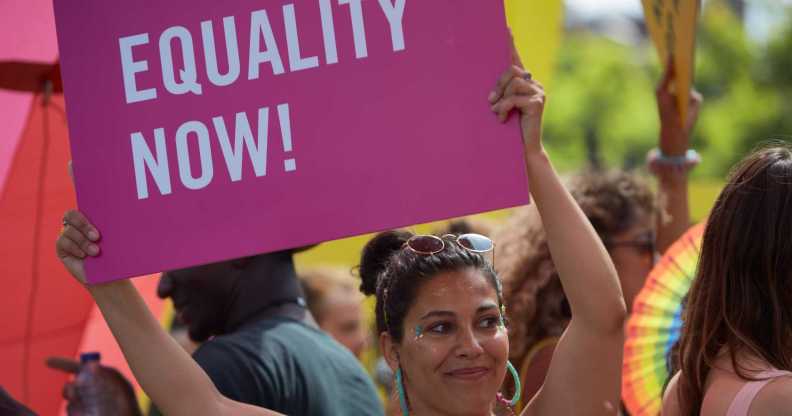The Netherlands votes to ban discrimination based on sexual orientation

14 per cent of Gen Z women identified as bisexual – more than double the 6 per cent seen across other ages group. (Getty)
The Netherlands voted to expand part of its constitution so discrimination on the grounds of sexual orientation and disability are explicitly banned.
The change, approved in a 56-15 vote by the Dutch senate, is the last step in a years-long process toward the amendment.
Previously Article 1 of the Constitution of the Kingdom of the Netherlands stated it is forbidden to discriminate on the basis of religion, philosophy, political preference, race, gender, “or on any other grounds.”
The amendment was an initiative from coalition party Democrats 66 and left wing opposition parties the Labour Party and GroenLinks, which was developed over a 12 year period.
In 2020, PinkNews reported the bill’s passage through the Dutch Parliament, where the amendement had to pass through both the upper and lower houses.
It came after LGBTQ+ groups in the country published an open letter calling for the government to anchor LGBTQ+ rights in Article 1.
“As far as we are concerned, it is now high time to cement all our hard-won rights for the future. That’s why we call on government and parliament to anchor the rights of LGBTI persons in Article 1 of the Constitution,’ campaigners wrote at the time.
“An important step forward”
Astrid Oosenbrug, chair of LGBTQ+ group COC Netherlands, called the 17 January vote was a “historic victory for the rainbow community” and thanked politicians for their work on the bill.
“It was an emotional moment when the Senate this afternoon, after all these years, voted in favour of Constitutional recognition by a large majority,” Oosenbrug said in a statement, ‘At last, LGBTI+ rights are proudly mentioned in Article 1 and are no longer concealed.”
Illya Soffer, CEO and director of Ieder(in), a Dutch organisation representing people with disabilities and chronic illnesses said: “Adding the disability basis to Article 1 is historic news,”
Soffer added the amendment was “badly needed” as people with disabilities often experience discrimination and exclusion: “The government is given an additional task to permanently improve and strengthen the position of people with a disability. Not only in legislation, but also in practice.”
Laura Bromet of GroenLinks called it “an important step forward in combating discrimination” while Labour member Habtamu de Hoop said: “A disability, or who you fall in love with, should never be a reason to be excluded.”
How did this story make you feel?

